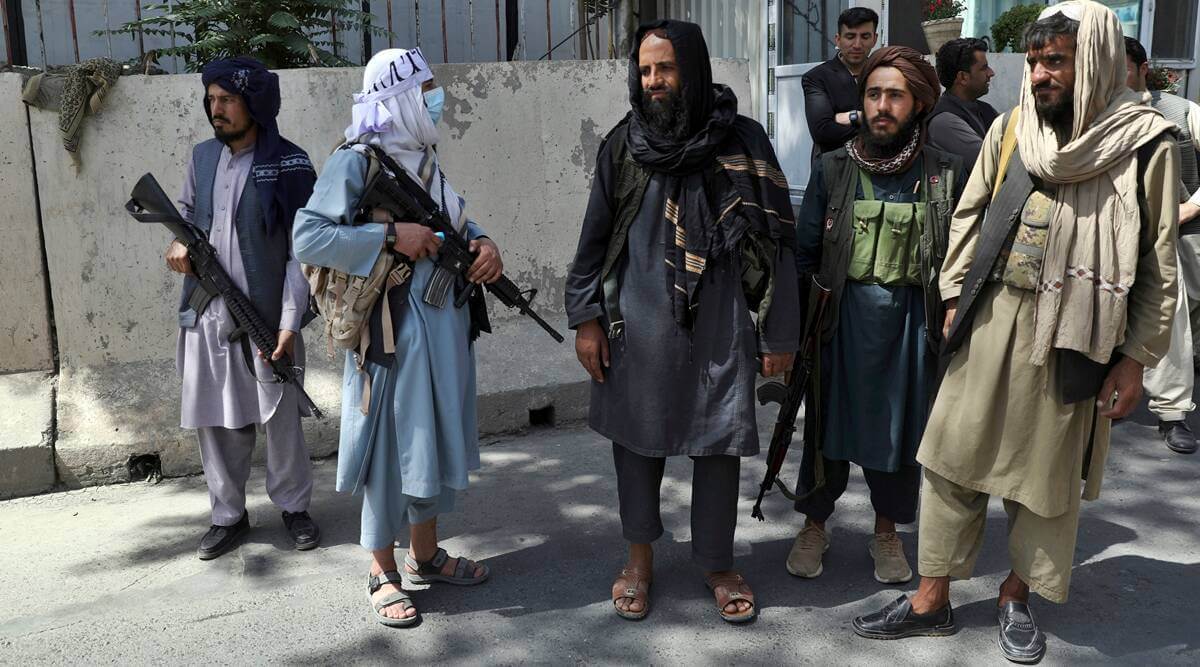Al-Qaeda views the Taliban coming to power in Afghanistan last August as a “collateral triumph” and has been using the country as a “save haven” with “increased freedom of action,” a United Nations Security Council (UNSC) report revealed.
It asserted that Al-Qaeda now views Afghanistan “as a friendly environment for continued occupancy,” wherein its affiliates, such as the Al-Qaeda in the Indian Subcontinent (AQIS), have expanded their reach across the region. In fact, the report says Al-Qaeda has leveraged the Taliban’s rise to power to “inspire Al-Qaeda affiliates globally” and incentivise funding and recruitment.
The document says that Al-Qaeda provides “advice and support to the Taliban” and even assisted the group as it seized control of the country last year.
It was published last week by the Analytical Support and Sanctions Monitoring Team of the Security Council Committee, which set up in 2011 for thee Islamic State (or Daesh), Al-Qaeda, and the Taliban. It comprises the 15 members of the UNSC and is currently chaired by India’s Permanent Representative to the UN, TS Tirumurti.
Jaish e Mohammed terror camps in Taliban controlled Afghanistan, says UNSC report. This is the first public confirmation of the terror group's presence in Afghanistan by any multilateral body since Taliban takeover: https://t.co/jJDj3c7EYp pic.twitter.com/Qa8zVvTJW2
— Sidhant Sibal (@sidhant) May 29, 2022
Al-Qaeda’s core leadership is reported to be active in the eastern regions of the Zabul Province near Kunar and along the Pakistani border. The group is also operating in southern and eastern Afghanistan. There has also been a shift to western locations.
According to the UNSC Committee, the AQIS has also grown in strength and numbers, with between 180 and 400 fighters in Afghanistan from Bangladesh, India, Myanmar, and Pakistan. The fighters have been engaged in violence alongside the Taliban at “individual level among Taliban combat units.”
The UNSC Committee also mentioned the video by Al-Qaeda chief Ayman Al-Zawahiri in April, wherein he criticised the recent hijab controversy in India and offered his support for Muslim students’ fight against the ban. In this regard, the document said, “The pace of recent communications suggests that he may be able to leader more effectively than was possible before the Taliban takeover of Afghanistan.”
That being said, the report suggests that while the group enjoys greater freedom under the Taliban, its “operational capability” is limited.” Consequently, due to limitations in capability and the Taliban’s restraint, Al-Qaeda is “unlikely to mount or direct attacks outside Afghanistan.”
Nevertheless, in February 2022, the Al-Qaeda said that it would “carry out attacks against the West,” clarifying that the violence would be orchestrated “from the rest of the world.” In this regard, the Committee expressed concern that the group could “regenerate that capability” in the “medium-to-longer term.”
The UNSC Committee also touched on differences between the two groups, particularly with regards to their position on the UN. While the Taliban has been pressing the international organisation to provide it with humanitarian assistance, the Al-Qaeda continues to refer to the UN as an “enemy of Islam.”
At the same time, however, Al-Qaeda has allayed any fears of a rift between the two groups by reiterating its support for Taliban’s leader Hibatullah Akhundzada and “highlighting historical links between the groups.”
Also read: New UN Report Highlights Fragility of the US-Afghan Peace Accord
One of the key terms of the United States-brokered Afghan peace deal last February was for the Taliban to sever ties with Al-Qaeda. In this respect, the UNSC report is only likely to further complicate the Taliban’s efforts to secure financial aid and recognition of its government
This objective has been further complicated by the Taliban’s erosion of human rights in the country. Earlier this month, it ordered all women to cover their faces from head to toe in public spaces. It has also banned girls from attending high school, barred and women from boarding flights unless they are accompanied by a male relative.
Furthermore, it has dissolved key institutions like the Ministry of Women’s Affairs, the Ministry of Peace, the Ministry of Parliamentary Affairs, the Afghan Independent Election Commission, the Human Rights Commission, and the High Council for National Reconciliation since seizing power last August.
The UNSC report further highlighted that the Taliban faces threats from the ISIS-K and supporters of the previous government, who have been fighting under the banner of the National Resistance Front and Afghanistan Freedom Front. Furthermore, there has also been an increase in activities of other foreign terrorist groups in the country, such as the Pakistani-origin Lashkar-e-Taiba.
In addition, the UNSC Committee asserted that the Taliban is favouring members of the Pashtun community, risking the alienation of Tajik and Uzbek communities.

